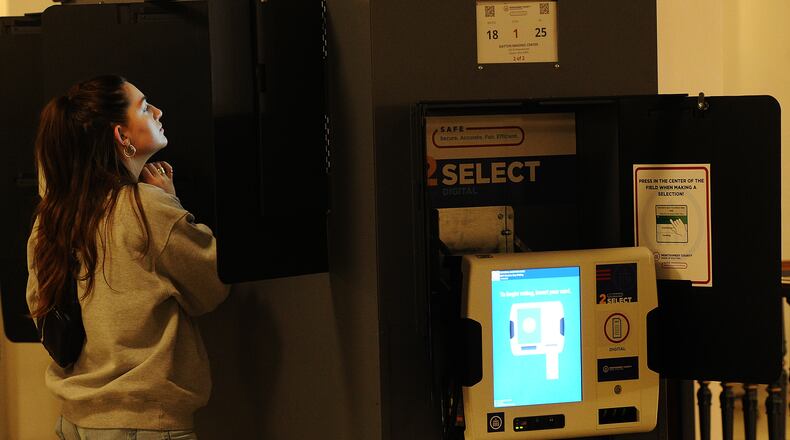“Securing the integrity of our elections must be our top priority. We must undertake every effort to prevent voter fraud, and requiring a photo ID to vote is a huge step in ensuring that,” said state Sen. Niraj Antani, R-Miamisburg, adding that the requirement will “restore confidence in our elections.”
Opponents of the bill say the measure will do the opposite, as Republicans have sped the bill through the Ohio legislature a little more than a week before the end of the legislative session. Additionally, the bill comes on the heels of a move by the Ohio legislature to raise the percentage of Ohio voters to pass amendments to the Ohio Constitution from a simple majority to 60%.
“The timing is almost as alarming as the provisions in the bill,” said Collin Marozzi, deputy policy director at the Ohio American Civil Liberties Union. “When you don’t have a problem in terms of voter impersonation, and you are creating additional barriers that will make 1 million Ohioans jump through several hoops in order to comply with it, that has an opposite effect on election integrity. People call into question the motives.”
Civil rights leaders, including the presidents of the Ohio Conference of the NAACP, the State Baptist Convention, and the A. Philip Randolph Institute sent an open letter to legislative leaders and Gov. Mike DeWine on Wednesday urging them to reject Sub HB 458, saying it would disproportionately affect minority voters.
“Ohio legislators should be seeking ways to expand voter participation, not disempowering certain voters from the franchise,” the letter said.
Measure’s impact
A 2019 analysis by Cleveland.com using census data and BMV records estimated that as many as 11% of Ohio adults do not have a driver’s license or state identification card, including at least 17% of 18-year-olds. This would account for more than 800,000 voting-age Ohioans.
“Voter impersonation in Ohio does not exist,” said Marozzi. “We haven’t had a single member of the general public, or somebody who was a poll worker, who was a county board of elections employee, come up and say ‘This is a problem that this happens, and we need to correct it.’”
Ohio Republicans, including DeWine and Secretary of State Frank LaRose have been on record saying Ohio’s elections are secure.
“I firmly believe that Ohio runs exceptional elections. However, there are always ways we can improve election integrity, which includes reducing the possibility of election fraud in Ohio,” said bill supporter state Sen. Theresa Gavarone, R-Huron.
Substitute House Bill 458 passed the Senate Tuesday 24-6. The bill is heading back to the House for possible agreement with Senate amendments, after which, if passed, the bill will go on to DeWine.
The original 15-page bill, sponsored by state Rep. Thomas Hall, R-Madison Twp., was intended to “rid ourselves of low-turnout special elections” in August that usually seek to raise taxes, said Gavarone. Future August special elections would only be allowed for a local government or district that’s in a “state of fiscal emergency.”
Senators added nearly 150 pages to the bill in committee, tacking on provisions from Gavarone’s Senate Bill 320.
As amended, the bill would:
- Require a photo ID to vote, and provide a free state ID to anyone over age 17 who doesn’t have a driver’s license or other valid photo ID.
- Cut the period for county boards of election to receive mail-in absentee ballots from 10 days after an election to four.
- Require absentee voters to provide a driver’s license or state ID number, the last four digits of their Social Security number, or other valid photo ID.
- Shorten the time for people who cast provisional ballots to prove their eligibility from seven days to four.
- Change the deadline for absentee ballot applications from three days before Election Day to seven days.
- Limit absentee ballot drop boxes to one location per county, at a board of elections office.
- Prohibit in-person absentee voting on the Monday before Election Day, but distribute those hours among previous days.
- Allow curbside voting only for the disabled who can’t enter a polling place.


